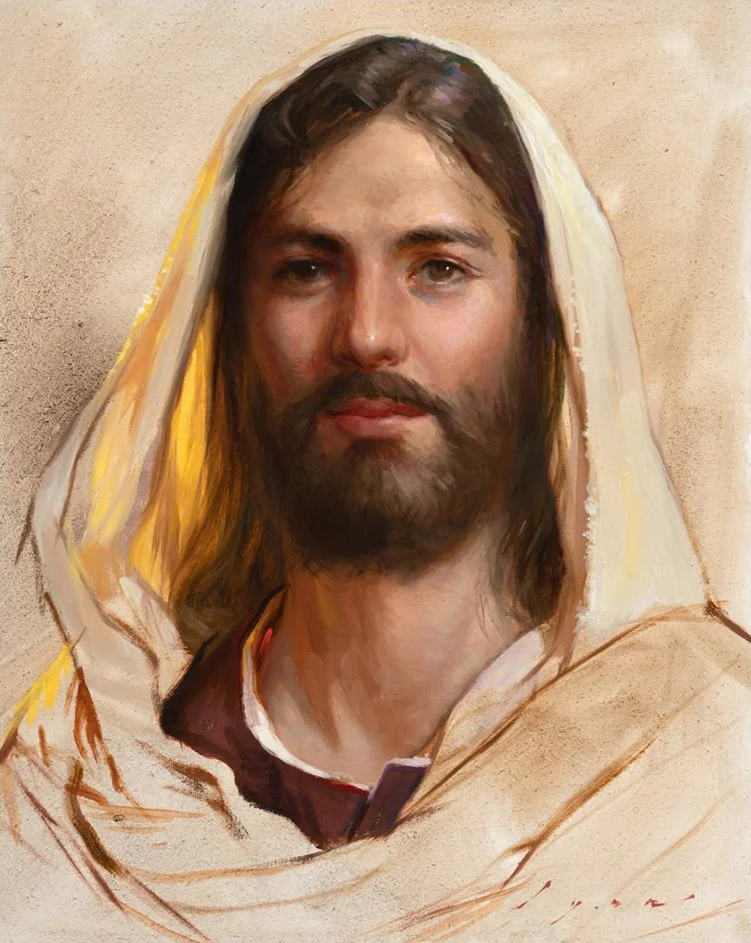"Then Jesus Beholding Him Loved Him"
by Ashlyn Pells
Do you remember the story of the rich young ruler in the Bible? In church lessons and in my personal study, I have almost always read only the account told in Matthew 19. The young man approached Jesus Christ and asked what he could do to obtain eternal life. In turn, Christ encouraged the man to keep the commandments, to which he responded, “All these things have I kept from my youth up: what lack I yet?”1 Christ then challenged the young ruler to sell all his possessions, give to the poor, and follow Him. After hearing what would be required, the young man “went away sorrowful.”2
However, in the slightly different account included in Mark 10, after the young man stated that he had kept the commandments from his youth, a six-word insertion transforms the entire experience: “Then Jesus beholding him loved him, and said unto him, One thing thou lackest.”3 He then proceeded to issue the same invitation.
 Let Not Your Hearts Be Troubled by Howard Lyon
Let Not Your Hearts Be Troubled by Howard Lyon
Why do these words make a difference? In the past, I did not consider that an invitation to sacrifice could be a sign of God’s love for me. But do we recognize that Christ only asks more of us because He loves us? Jesus Christ truly beholds us, and seeing our past, potential, and spirit, He loves us—and He asks us to give more, because He knows that we can. He knows what we can become.
Wilford Woodruff once shared an experience he had with John Benbow, an English convert. Wilford described, “John Benbow was a noble man. He was like an English lord; as rich a man, I suppose, as ever came into the Church.” Less than a month after Brother Benbow’s baptism, he came to Wilford and said that he wanted to sell all his possessions to further God’s work, following the example of the Apostles in the New Testament. Wilford replied “that the Lord would accept of his sacrifice, and that whenever he could do good, he should do it; he should assist the poor, help publish the Book of Mormon, etc.”4
In Brother Benbow’s time spent with the Lord in the scriptures, he received a similar call to the one received by the rich young ruler. However, rather than grieving at the magnitude of the sacrifice, Brother Benbow grasped the opportunity to come closer to the Lord. He must have felt like Wilford, who once declared, “I would rather be poor all the days of my life, I would rather go through poverty and affliction, it matters not how severe, even to the sacrifice of my own life, than lose salvation and eternal life.”5 Perhaps Brother Benbow recognized that God’s invitation was an indication of His love.
The next time God invites us to make a difficult sacrifice, I hope we will remember that He only asks it because He loves us. He sees our infinite worth and potential, and He knows what we must do to clear the barriers between us and our Heavenly Father. Rather than sorrowing at our sacrifices, I hope we can rejoice.

Ashlyn is the Associate Editor for the Wilford Woodruff Papers Foundation. She recently graduated from Brigham Young University with a bachelor’s degree in Editing and Publishing, and she is grateful to use her experience to help with this incredible Project. When she isn’t editing or reading historical documents, you can typically find her spending time with her husband and baby, playing the piano or the organ, singing, running, or enjoying the outdoors.
-
Matthew 19:16–20.
-
Matthew 19:22.
-
Mark 10:21; emphasis added.
-
Discourse by Wilford Woodruff, October 6, 1895, p. 3, The Wilford Woodruff Papers.
-
Discourse by Wilford Woodruff, June 27, 1875, p. 7, The Wilford Woodruff Papers.